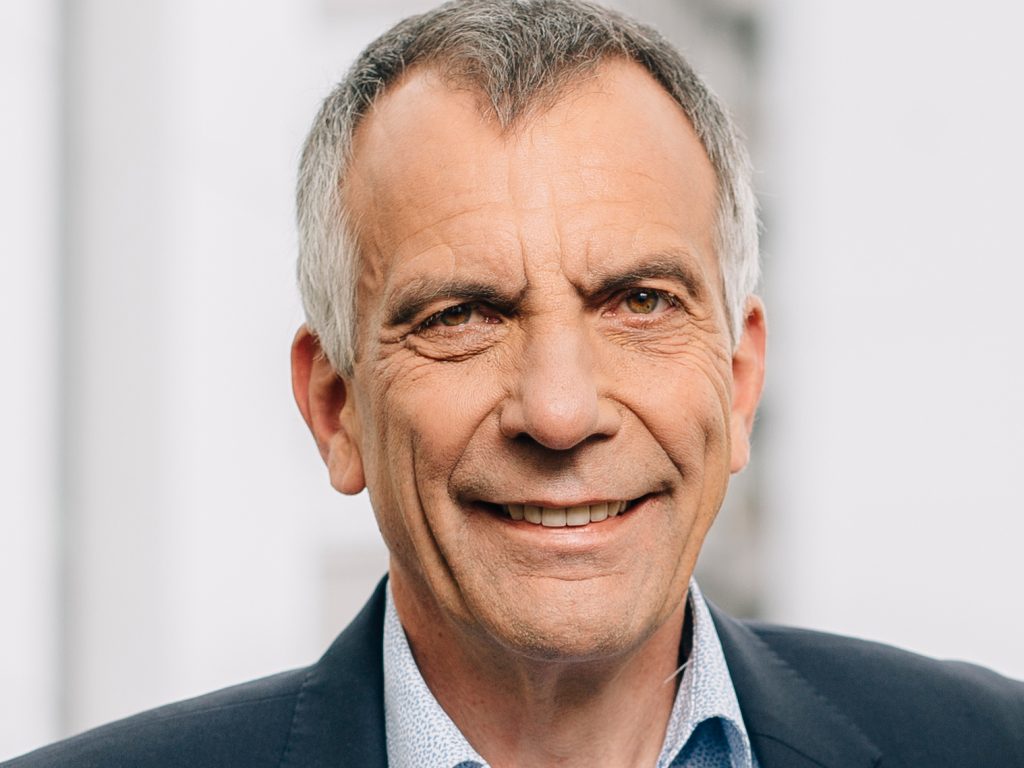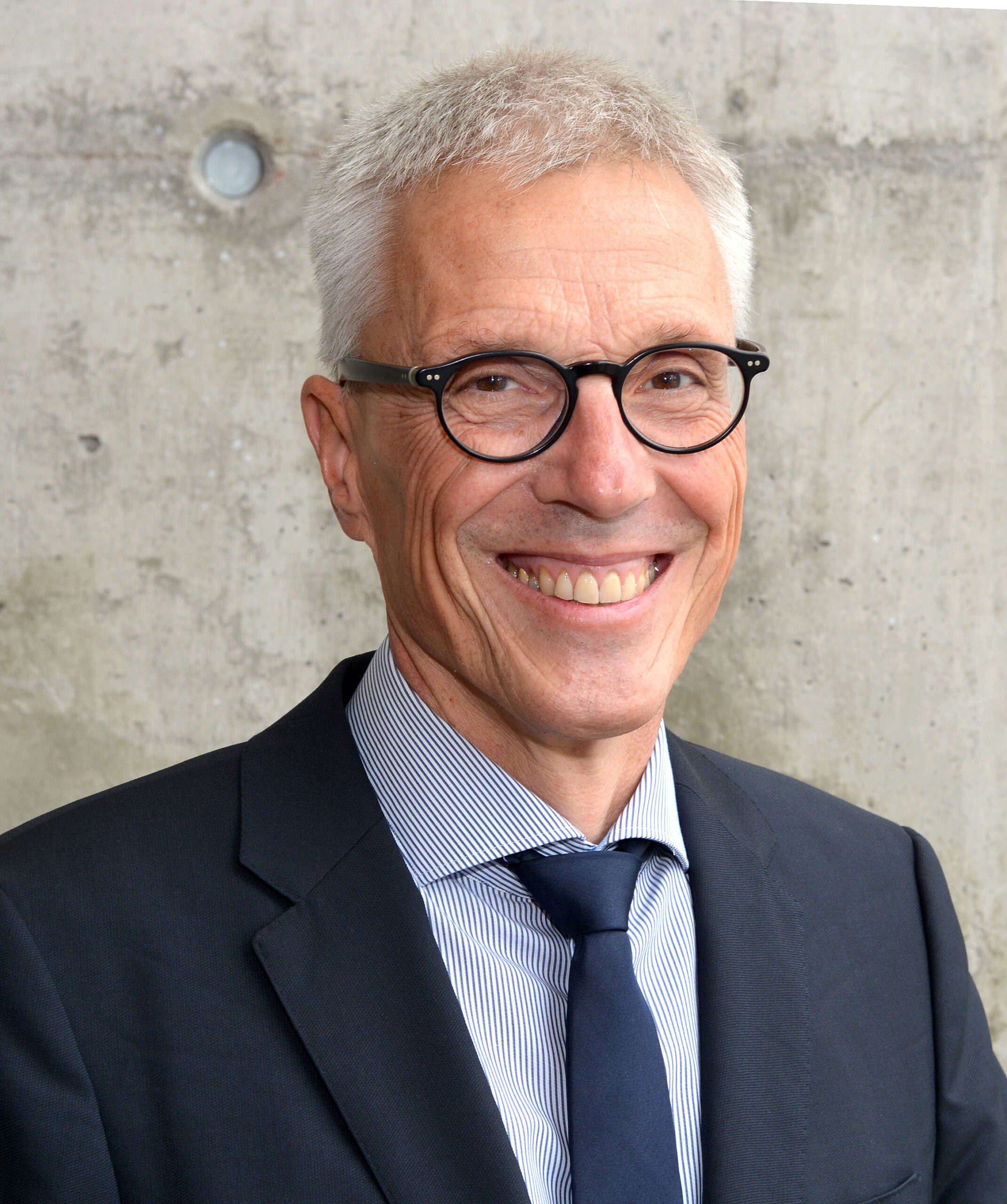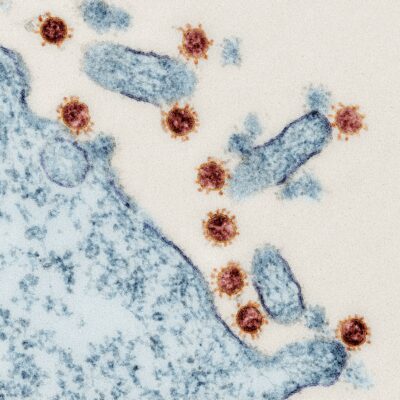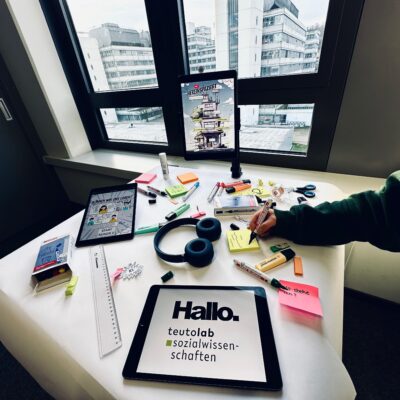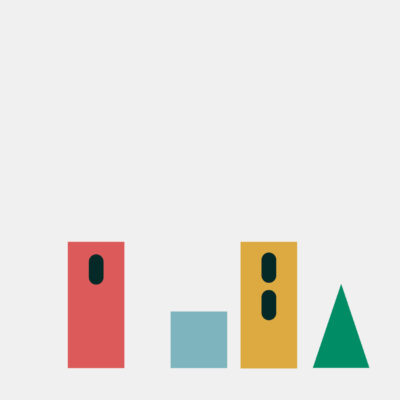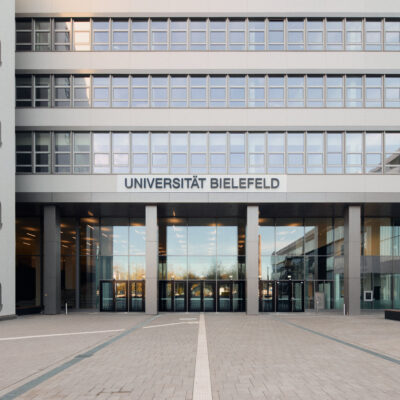One year into the coronavirus pandemic—an interim assessment for Bielefeld University.
Mr Sagerer, on 31 January 2020, an e-mail came from you for the first time about a new virus called Covid-19. The mail contained travel and hygiene advice. Back then, did you anticipate this virus becoming the cause of a global pandemic?
Sagerer: I’m sure no one could have foreseen the full extent in January. However, after the World Health Organisation’s warning, I was well aware that this was a serious virus that posed a danger not only in Asia. That is why we reacted very early on with the e-mail you mentioned. It concerned travel connected with China in particular. And then everything happened very quickly …
Becker: Shortly afterwards, we had to extend the regulations to included returnees from other countries and regions. At the same time, I introduced initial communication formats with the various groups at the university for the discussion and planning of measures, because in February it was clear that this virus would also have a major impact on university operations. However, the consequences were much more drastic than first feared.
When it was clear that this was a pandemic that would also have a massive impact on university operations, what were the guiding principles by which decisions were made?
Sagerer: We are aware of our social responsibility. Universities are places of communication and international exchange—a lot of people converge in a small space here. Academics and students are also mobile both nationally and internationally. Fortunately, when the pandemic broke out, we were on semester break …
Becker: Yes, the semester break bought us time. We were then able to decide our way forward in discussions with the different groups. Our aim was to do everything we could to stop the virus from spreading. At the same time, research and teaching were to continue as far as possible. A difficult balancing act, as the ensuing months have shown. One example of this: we were the only university that never completely closed the library because we are convinced that academia needs literature. Many academics and students appreciated this, but there was also criticism that we were endangering the staff.
Sagerer: Communication was at the heart of our crisis strategy. From the very beginning, we have been committed to transparent and fast communication via e-mail with students and staff, and have built up an extensive programme on the Internet. In addition, we tried to explain our policy, the measures, and the implications in live streams for staff and students. I believe that this has created understanding and trust. It has also always been important for us to signal that we know what this pandemic means for staff and students. We take their concerns very seriously.
Becker: At this point, I would like to emphasise once again that we do not know of any incidence where a member of staff or student has been infected at the university. We owe this to our sophisticated hygiene concepts and the discipline exercised by everyone. I would like to thank everyone for that.
Mr Becker, you head the crisis team. Can you give us an insight into the crisis management?
Becker: From March onwards, some quick decision-making was necessary. I was able to draw up these decisions together with a team of key players. In the meetings of this crisis team, some of which were held on a daily basis, the departments of Human Resources, Facility Management, Learning and Teaching, and Communication were represented by their respective heads in addition to the Office of Occupational Safety, Health and Environmental Protection (AGUS). Ms Drechsler, head of AGUS prepared the meetings, coordinated the preparation of the organisational decrees, and devised the many hygiene concepts with her team. I would like to take this opportunity to thank my colleagues in the crisis team for their constructive and conscientious collaboration.
But the coordination and communication didn’t end there …
No, the measures discussed in the crisis team were, time permitting, discussed in the rectorate and the circle of departmental heads. If necessary, there was an exchange with the deans. The staff councils, the equal opportunities officers, and the representatives of the severely disabled were also involved. We also kept in contact with the Bielefeld health authority and I personally was in regular contact with the head of Bielefeld city’s crisis team. I think we have a good communication structure and culture, enabling quick decisions that are acceptable for everyone. Overall, I tried to involve as many colleagues as possible so as to understand the consequences of our actions.
Sagerer: I am incredibly proud of our entire university. The crisis clearly shows how much staff and students alike identify with their university …
Becker: … To deal with this situation the way we have done, we needed a lot of committed people. The measures were drastic and some of them came at short notice. We all switched to online teaching and working from home within a very short time and approached the challenges with great sensitivity. Most importantly: the infrastructure functioned perfectly. Our BITS data centre has done a fantastic job here. I should actually mention a lot more colleagues who shouldered responsibility during this time.
It all sounds very positive. Haven’t there been any problems?
Becker: A lot, unfortunately. Childcare during the lockdown, parallel to work, was and is a great struggle for many employees. Here we have provided some relief by introducing trust-based working hours—at least in the administrative area. The conversion to digital formats in teaching has required a tremendous amount of time and effort—not only for our teaching staff, but also the support areas. We have provided teaching staff with additional funding for support staff. In addition, there is a great need for training in the technical and didactic aspects of digital tools. And in this context, communication within the organisational units and working groups was significantly more difficult. These examples illustrate just how complex and exhausting this pandemic was and still is for all of us.
Sagerer: And, on top of that, we mustn’t forget the students and their problems and concerns. They find the situation very stressful, are worried about their academic progress, suffer from the lack of personal exchange, and often have financial problems. An entire year’s intake has not yet studied on site. As an institution, we have a special responsibility here. For all those involved in teaching, it poses a major challenge and means a heavy workload.
Becker: One group that is rarely focused on s is that of young researchers and doctoral candidates. A lot of them are anxious about their academic careers because hardly any networking—especially at international level—is taking place, research activities are limited, access to sources or excursions are not possible. The whole academic system is challenged with avoiding the creation of a ‘lost generation’.
What are and were the biggest challenges for you?
Sagerer: It saddens me to see the university now: the campus, which is normally so full of life, looks as if it has died. The university’s deserted main hall is an image that says it all. Even though it works quite well: I can’t get used to meetings via Zoom. Like most people, probably, I miss the personal exchange.
Becker: I am very impressed at how flexible our university has proved to be. It’s something we can all be proud of. Nevertheless, I notice a lot of people are weary, which is quite understandable. Even though we have adjusted well to the situation: we are still in a state of emergency, which is really starting to get to everyone. We just have to hold on a bit longer.
Recently, coronavirus sceptics have been very present in the media. At Bielefeld University, there are also people who are sometimes extremely critical of the state’s measures. Are these people damaging Bielefeld University’s reputation?
Becker: We have a clear line on this: Bielefeld University’s primary goal is to protect its members from infection and to maintain university operations through appropriate measures. To safeguard the health of students, staff, and guests, we have therefore taken extensive protective measures and developed and implemented hygiene concepts since the very beginning of the pandemic. In this context, the university’s responsibility to contain the pandemic is not only towards members of the university, but—as one of the largest public institutions in the city—also towards all fellow citizens in the Bielefeld region. We fully support the government’s measures and want to contribute to mastering this social challenge. However, we also have to accept that there are people whose opinion on this differs. Freedom of expression and academic freedom are very valuable rights in a democracy. This is particularly so at a time like this, when the state is partially restricting fundamental rights.
Sagerer: Of course, we are aware of the critics within our own ranks. Some of them criticise the university’s measures, considering them inappropriate. But there are also academics who appear in public and criticise the state’s measures. That is something we also have to accept. Naturally, they are allowed to speak their minds publicly. They do not have to hide their professional background. Personally, of course, I find it at the very least unfortunate when academics at our university communicate theses and theories that are sometimes very difficult to accept. In such cases, however, it is not the rectorate’s job to check whether statements and publications are scientifically sound. I rely here on the scientific community to discuss this. Nor do we make any moral judgements. But I would also say that it becomes problematic when, for example, courses are used to disseminate such theses. It’s a very fine line and something we take a very close look at.
Where do we go from here? When can we start studying and working together again at the university?
Sagerer: We are currently planning the summer semester as a hybrid one again. Meaning: as much online as possible. I am hoping that the Federal Government’s promises prove true and that we have all largely been vaccinated by autumn. Then the situation should also improve significantly for us. I have hopes for the winter semester 2021/22.
Becker: I don’t think the university will return to business as usual before autumn, either. But until then, it should be possible to open gradually. I am optimistic that now, after an exhausting winter, things are beginning to look up.
